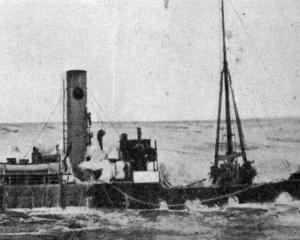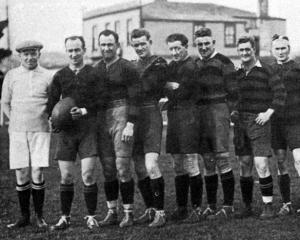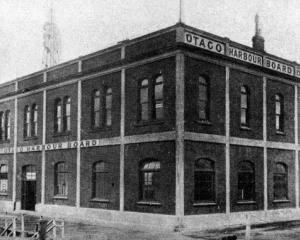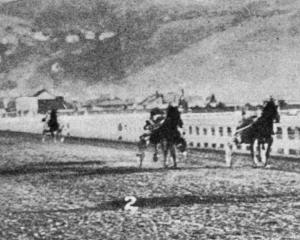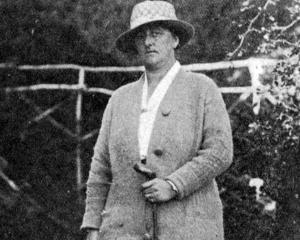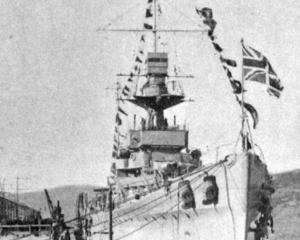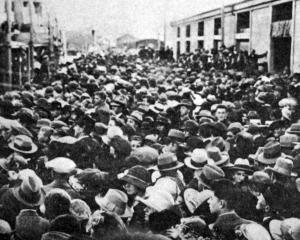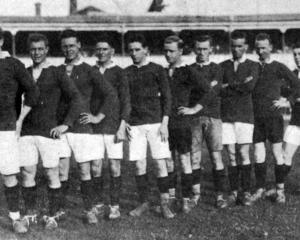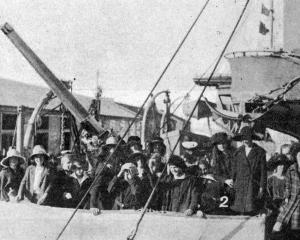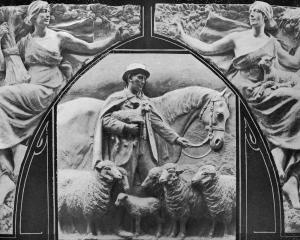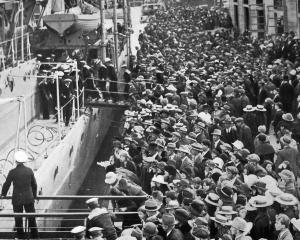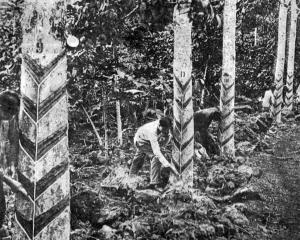From 7.30 a.m. till late at night the city was in the hands of an army of white-clad ladies, young and old - but principally young,- who gazed searchingly at the apparel of every passer-by.
And should one, no matter how well or ill-dressed, be minus a button-hole or a nosegay, instantly one was held up without ceremony and compelled to purchase once.
It is true that physical force did not enter into the matter.
But coaxing smiles and batteries of bright eyes were far more potent in conjuring sixpences, shillings, half-crowns, and far larger coins out of the pockets of the public, and there were very few who were so dour as to resist the pleasant importunity of the vendors.
The city itself wore an air of carnival.
Bunting was prominent on many buildings, and the streets and the frequent stands of the flower sellers were gay with the flags of the Allies and with creepers and greenery, assistance having been rendered with the heavier portions of the decorating work by the Fire Brigade and members of the Ambulance Corps.
The response was splendid, and it is probable that there has never been a day before when so many of the people of Dunedin have carried bouquets or sported buttonholes.
Vehicles passing along the streets were decorated with them.
It was necessary for the drivers to display flowers prominently, for there were young ladies by the dozen who were intrepid enough to bail up the fastest motor car did it not carry its floral passport through the city.
So the people just paid up and looked pleasant. Some bought a sixpenny buttonhole, and felt a virtuous glow of self-satisfaction.
But there were many others who were positively greedy at doing good, and who bought up flowers by the tray, as, for example, the man at the City Hotel stand, who paid £1 for a basket of blooms, and sold them again and gave the proceeds to the lady who had originally sold him his quickly-vanishing stock-in-trade.
All day long basket after basket full of flowers was carried out on the street by each of the keen vendors, and emptied and replenished again and again at the Early Settlers' Hall, where a number of ladies had plenty to do to make the flowers up in attractive bundles and pile them into receptacles.
Meals for the collectors were provided by several hotels and restaurants that there might be no break in the good work.
• WHAKATANE: Apparently the greatest eruption since the Tarawera eruption on June 10, 1886, occurred at White Island, presumably last Thursday week, when a dense volume of black smoke was seen rising.
The island is worked by the White Island Sulphur Company, which had an extensive plant there and quarters for a manager and about 10 men.
Supplies for the island are sent from Opotiki about once a fortnight, and Pilot Mokomoko, the launch proprietor of Opotiki, went on the regular trip on Tuesday last, but, having no dinghy, was unable to land, and could not attract any attention.
He therefore concluded the men were absent on another part of the island.
He did not notice any change in the aspect of the island, and returned to Opotiki.
He proceeded to the island again on Saturday morning, and landed, and found a scene of desolation on the site previously occupied by the works and the camp.
The effect of the eruption seems to have been to throw the whole hillside overlooking the large lake and camp into the lake and over the whole of the surrounding area, completely burying the works, dwellings, boats, and the small wharf and all the inhabitants. - ODT, 21.9.1914.
• COPIES OF PICTURE AVAILABLE FROM ODT FRONT OFFICE, LOWER STUART ST, OR WWW.OTAGOIMAGES.CO.NZ

